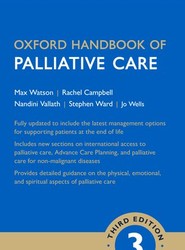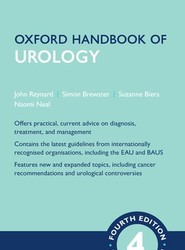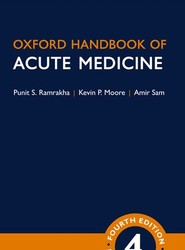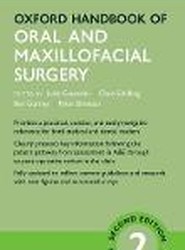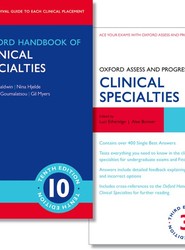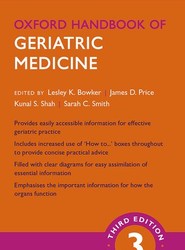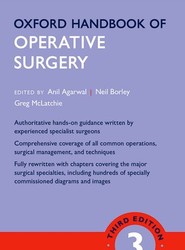(To see other currencies, click on price)
MORE ABOUT THIS BOOK
Main description:
Delivering the facts to your fingertips, the Oxford Handbook of Tropical Medicine provides an accessible and comprehensive, signs-and-symptoms-based source of information on medical problems commonly seen in the tropics. A handy guide which can fit in the coat pocket and be used easily at the bedside, it has been designed to be as practical as possible with illustrations of blood films and stool smears, which are useful for diagnosis, as well as clinical features, diagnosis, and
management. Medical conditions are ordered by system except for the five major tropical conditions - malaria, HIV/STIs, tuberculosis, diarrhoeal diseases, and acute respiratory infections - and fevers. In this new edition the sections on malaria, cardiology, chest medicine, gastroenterology, mental
health and dermatology have undergone major revision, and there is new material on altitude sickness, heat stroke, avian flu and fuller poisoning. There is a greater emphasis on paediatric medicine and public health throughout, and new illustrations and photographs have been included to aid with diagnosis. Small enough to throw in your rucksack, this unique handbook is the ultimate quick reference guide for all those working in the tropics.
PRODUCT DETAILS
Publisher: Oxford University Press (OUP Oxford)
Publication date: March, 2008
Pages: 872
Dimensions: 107.00 x 186.00 x 26.00
Weight: 445g
Availability: Not available (reason unspecified)
Subcategories: General Practice, Infectious Diseases, Microbiology
From the same series
Max Watson
Harveer Dev
John Reynard
Punit Ramrakha
Amy Kravitz
Stephan Sanders
Peter Brennan
Gavin Clunie
Alastair K. O. Denniston
Andrew Baldwin
Hugh Devlin
Lesley K. Bowker
James Carton
Ian Wilkinson
Grenville Fox
Anil Agarwal
Philip Wiffen
Bernard Prendergast
Susan Burge
Andrew Baldwin
Sue Fitzpatrick
Murray Longmore
Robin N. Illingworth
Jeremy Levy
Keith Allman
Sabaratnam Arulkumaran
George Castledine
Jim Cassidy
Judith Collier
Chris Johnson
Drew Provan
Alastair Denniston
Hadi Manji
Keir Lewis
Laura Mitchell
Grace Robinson
Stephan Sanders
Judith Collier
Katharine Boursicot
Simon Steddon
Robert Davidson
Murray Longmore
John Guillebaud
Sabaratnam Arulkumaran
Julia Smedley
Ichiro Kawachi
John Reynard
Neil Borley
David Semple
Jonathan P. Wyatt
Gavin Spickett
Judith Collier
Robert C. Tasker
Domhnall MacAuley
Domhnall MacAuley
Saul G. Myerson
Lesley Bowker
Punit Ramrakha
Jonathan P. Wyatt
James Carton
Philip Wiffen
Joan Webster-Gandy
Stuart Bloom
M J Darby
Peter Brennan
Duncan Richards
Alan Hakim
Robert Wilkins
Stephan Sanders
Mark Bellamy
Peter Brook
Jason Payne-James
Susan Burge
Gavin Bowden
Jim Cassidy
Punit Ramrakha
Murray Longmore
Saul G. Myerson
Rogan J Corbridge
Grenville Fox
Chantal Simon
Guy Bradley-Smith
Bernard Prendergast
Alastair K. O. Denniston
Anthony Ward
Helen Turner
Max Watson
Steven Chapman
Mervyn Singer
Jeremy Levy
David Semple
John Reynard
Huw Llewelyn
Drew Provan
Judith Collier
Sabaratnam Arulkumaran
Sabaratnam Arulkumaran
Chris Johnson
John Guillebaud
Edzard Ernst
Julia Smedley
Ian Greaves
Domhnall MacAuley
Simon Steddon
David Pencheon
Gavin Spickett
CUSTOMER REVIEWS
...a practical, well-written, pocket-sized handbook for practitioners or medical students of tropical medicien working in an area of limited resources...based on current WHO guidelines...[it] will be useful for practitioners in isolated settings. ...this is a gem of a handbook.


